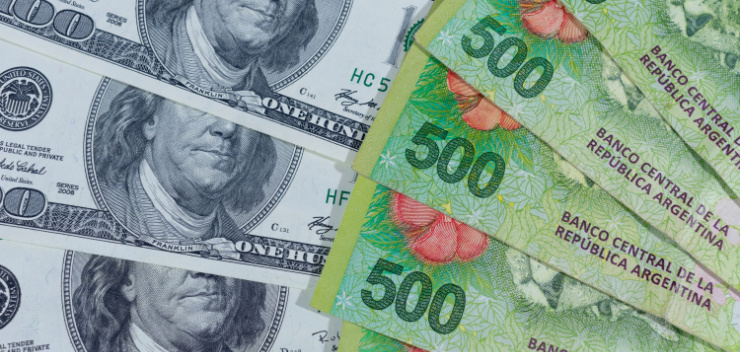You read earlier today that despite Bidenflation, the dollar still goes a long way in Argentina, where inflation reaches levels most Americans can’t comprehend. At Cato Institute, Daniel Raisbeck and Gabriela Calderon de Burgos report that the rate has reached over 100% for the first time since 1991. Many Argentinians, report Raisbeck and Calderon de Burgos, would like their country to adopt the dollar as its currency. They write:
For the first time since 1991, Argentina suffers from annual inflation rates above 100 percent. As voters prepare to head to the polls on August 13, the date of the presidential primaries for all parties, a majority thinks—regardless of ideology— that inflation is the country’s most pressing problem. Meanwhile, a significant minority—29 percent according to one poll— now considers that the best way to tackle inflation is to get rid of the Argentine peso altogether and adopt the U.S. dollar as the official currency. They are absolutely right.
As we explain in a new briefing paper out today, dollarization works because it deprives the local ruling class of all control over the national currency. This protects ordinary people’s purchasing power from the excesses of chronically profligate politicians and often subservient—or simply incompetent—central bankers. Along with Peru, a semi‐dollarized economy, Latin America’s three fully dollarized countries—Panama, Ecuador, and El Salvador—have had the region’s lowest inflation levels during the past 20 years (and much longer in the case of Panama). Unlike many countries in the region, the dollarized trio did not see double‐digit inflation in the aftermath of the Covid‐19 pandemic. Steve Hanke, a Johns Hopkins University economist, puts it well: dollarization is equivalent to instituting the rule of law in the monetary sphere.
Dollarization is often compared to the convertibility system that Argentina implemented in the 1990s, a monetary regime consisting of the Central Bank maintaining unlimited convertibility between its currency and that which it is pegged to at a fixed exchange rate. That system ultimately fell apart because it deviated from following orthodox rules. But because dollarization simply replaces a local currency with a foreign one, it does not depend on a promise from the political class to abide by a certain set of rules and it has proven much harder to undo. As we explain in our policy brief, this does not imply a country’s surrender of its monetary policy to the United States:
“As economist Juan Luis Moreno‐Villalaz argued in the Cato Journal in 1999, Panama’s banks, which have been integrated to the global financial system after a series of liberalization measures in the 1970s, allocate their resources inside or outside the country without major restrictions, adjusting their liquidity according to the local demand for credit or money. Hence, changes in the money supply—which arise from the interplay between local factors and the specific conditions of global credit markets— and not the Federal Reserve, determine Panama’s monetary policy. Fed policy affects Panama only to the same extent that it does the rest of the world”.
In Argentina, opposition to dollarization comes from critics on both the left and the right. The former usually claim that adopting the dollar is a costly affront to national sovereignty (the cost pertaining to the loss of seigniorage). The latter tend to argue that local technocrats will be left without monetary tools with which to steer the national economy. Neither side has come to terms with the reasons why an overwhelming majority of Panamanians, Ecuadoreans, or Salvadoreans wouldn’t dream of ditching the dollar in favor of weak national currencies. In fact, minimal inflation rates are but one benefit of dollarization. The others include far lower interest rates, longer loan periods, and an intrinsic hard budget constraint on governments and parliaments alike.
Read more here.
If you’re willing to fight for Main Street America, click here to sign up for my free weekly email.





